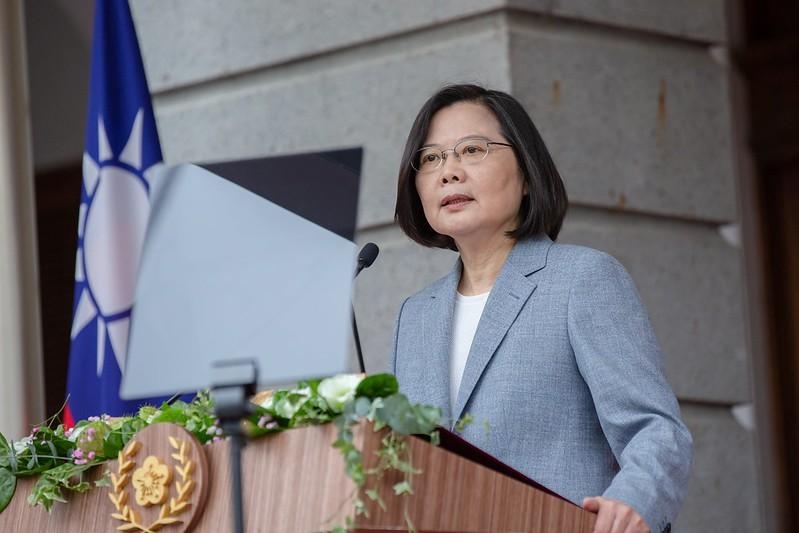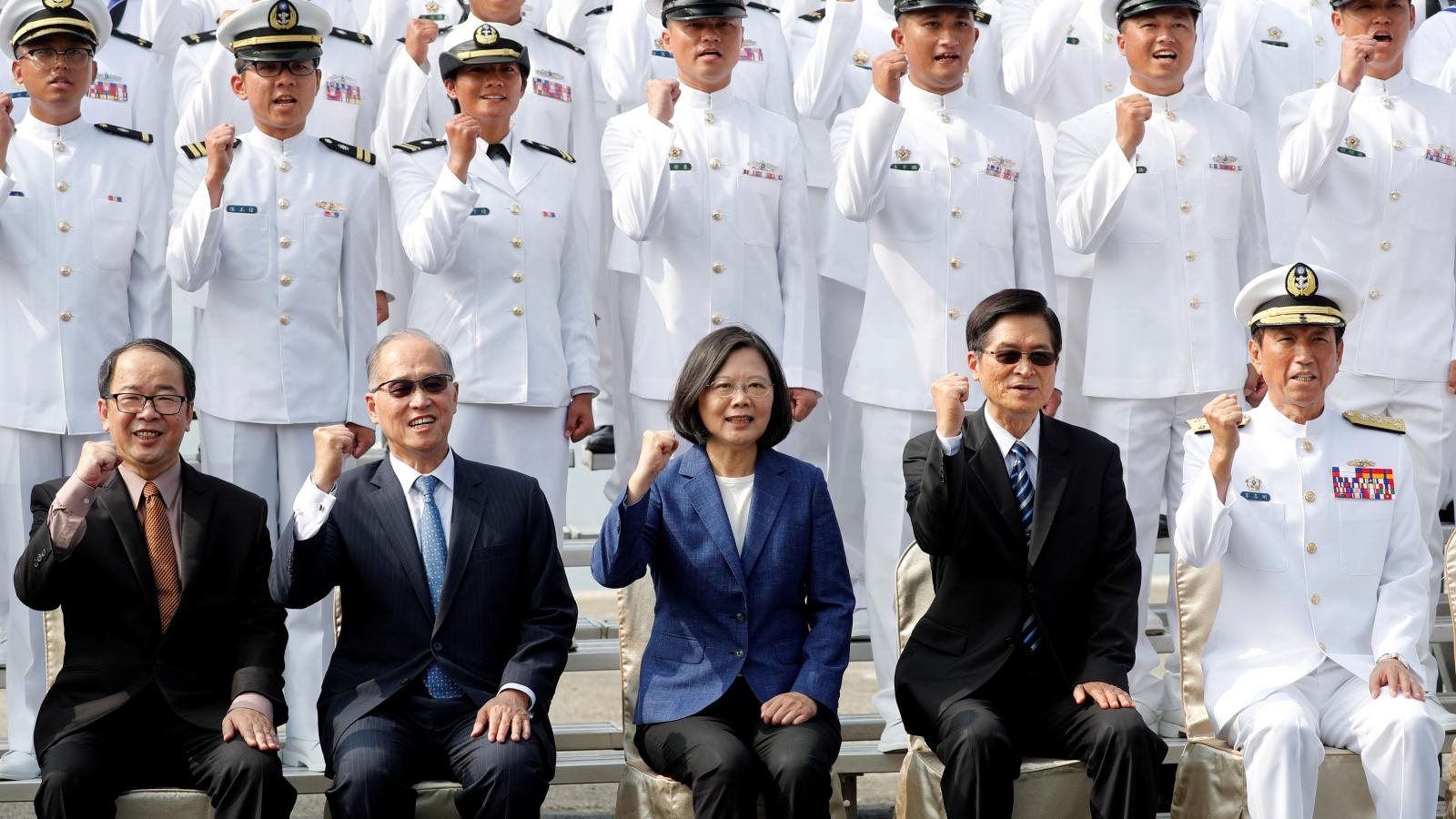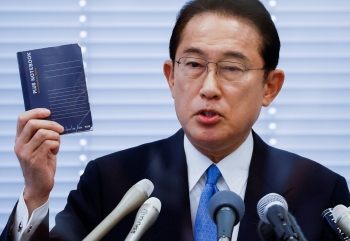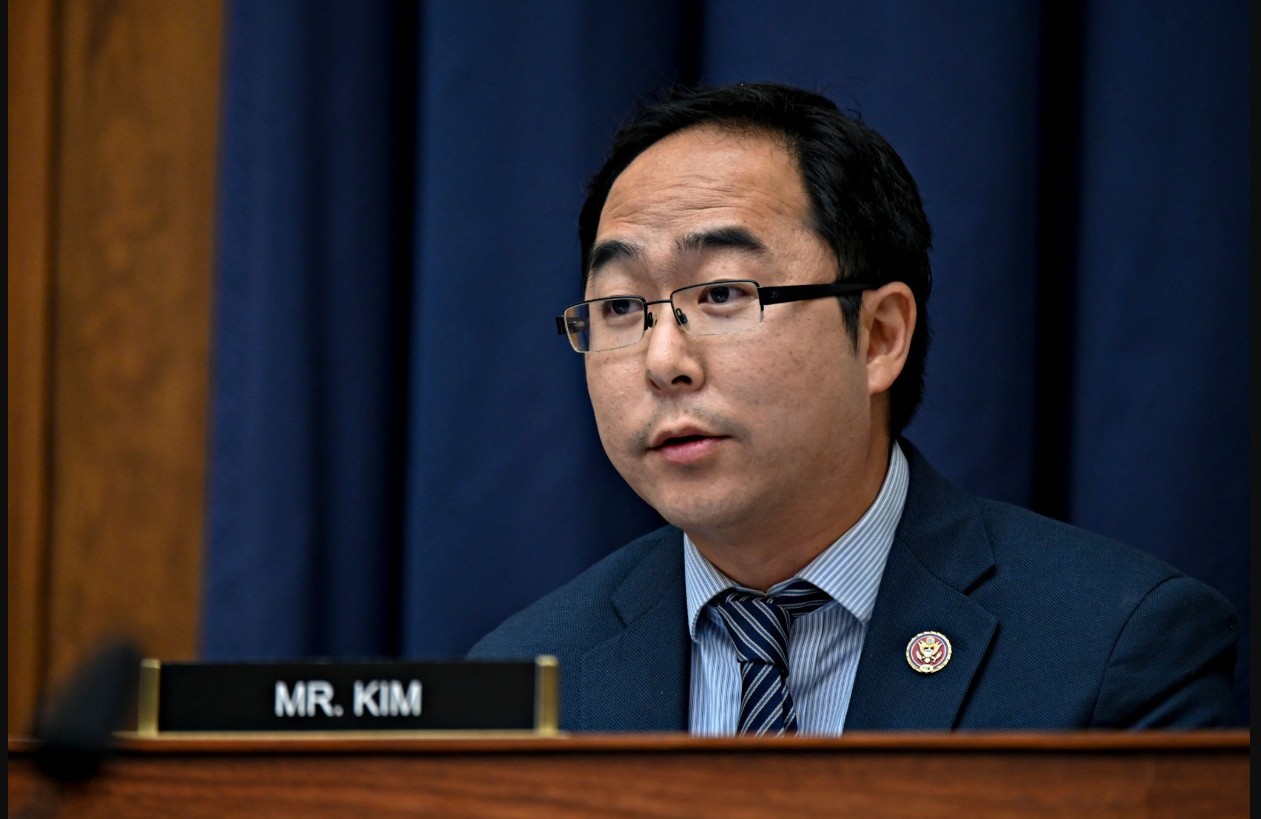Who is Taiwanese Leader Tsai Ing-wen: Biography, Personal Life And Political Career
 |
| Tsai Ing-wen. Photo: ROC Embassies and Missions Abroad |
The buzz of Tsai Ing-wen becoming the first female Taiwanese president is in the air and we are proud to witness such a revolution in Asia, a continent that has been prominently dominated by male influence. Tsai Ing-wen relentlessly has started her quest to revolutionize Asia, one country at a time.
Who is Tsai Ing-wen?
Tsai Ing-wen is the current President of Taiwan (officially the Republic of China), in office since May 2016. She is the first woman elected to the office and also the first president to be of aboriginal descent. The incumbent chairperson of the Democratic Progressive Party (DPP), she was the party's presidential candidate in 2012 as well. She was born in the mid-1950s; merely years after Mao Zedong’s communist troops took Beijing and forced Chiang Kai-shek’s nationalists to flee across the Taiwan Strait. A bright girl, she graduated in law from the National Taiwan University and moved abroad for her higher studies.
She returned home after earning a Ph.D. in law from the London School of Economics and embarked on an academic career. After teaching law at School of Law at Soochow University and National Chengchi University for several years, she held a series of high-profile governmental positions under the then-ruling Kuomintang (KMT). Her involvement in politics intensified over time and in 2004 she joined the Democratic Progressive Party (DPP). Tsai was appointed to the post of vice president of the Executive Yuan in 2006 and was made the chairperson of the DPP a couple of years later.
Tsai Ing-wen Childhood & Early Life
Tsai Ing-wen was born on 31 August 1956, in Taipei, Taiwan, to Chang Jin-feng and Tsai Jie-sheng. She was the youngest of the nine children of her parents. Her father had a car repair business.
As the youngest child in her family, she spent much of her leisure time caring for her father. No one in her family expected the girl to grow up to have a professional career.
Her father encouraged her to study and on his advice she enrolled at the College of Law, National Taiwan University, and earned her bachelor’s degree in 1978. She then moved to the Cornell University in New York to earn a Master of Laws in 1980. In 1984, she earned a Ph.D. in law at the London School of Economics.
Tsai Ing-Wen Education Qualification, School & College
 |
| Tsai Ing-wen. Photo: Quartz |
Tsai Ing-wen went to Taipei Municipal Zhongshan Girls High School in Taipei, Taiwan. Then in 1978, she studied law from National Taiwan University. Later in 1980, she completed the Master’s degree in Laws at Cornell University Law School. Then in 1984, Tsai did Ph.D. in law from the London School of Economics.
| Educational Qualification | Ph.D. in Law |
| School | Taipei Municipal Zhongshan Girls High School, Taipei, Taiwan |
| College/ University | National Taiwan University, Cornell University Law School, London School of Economics |
Tsai Ing-Wen Family Members Information
Tsai’s father, Tsai Chieh-sheng (deceased), was an owner of an auto repair shop, and her mother, Chang Chin-Fong (deceased), was a housewife. Tsai’s father had four wives, and her mother was the fourth wife among her father’s four mistresses.
Tsai Ing-wen is the youngest daughter of her parents. She has five elders sisters and five elder brothers in which she has three real siblings among them.
| Father | Tsai Chieh-sheng (1918-2006) |
| Mother | Chang Chin-Fong (1925-2018) |
| Brother | Tsai Ying-Yang, Tsai Ing-cheng, Tsai Ying-Jen, Tsai Ying-ming, Tsai Ying-nan |
| Sister | Tsai, Ying-ling, Tsai Ying-Chun, Tsai Feng-Chiao, Tsai Ying-Ju, Tsai Yueh-Ying |
Tsai Ing-Wen Net Worth & Salary Information
According to some information, Tsai has $NT 54 million in bank savings (mostly under trust), $NT 4 million in securities, $NT 1 million in other investments, and owes $NT 8 million in debt. Besides, she also owns about 300 square meters of land and 400 square meters of inbuilt space under the trust.
According to Forbes, Tsai came is ranked in #41 in the list of wealthiest people in the world.
| Net Worth | $ 4-5 million (approx) |
Tsai Ing-wen Career
She returned home and began her career as an educator, teaching law at School of Law at Soochow University and National Chengchi University, both in Taipei.
A highly ambitious woman, she had ventured into governmental positions by the early 1990s. Working under the then-ruling Kuomintang (KMT), she served as a key trade negotiator involved in Taiwan’s entry into the World Trade Organization and was also one of the chief drafters of the special state-to-state relations doctrine of then President Lee Teng-hui.
In 2000, Democratic Progressive Party (DPP) came into power and President Chen Shui-bian took office. Under his administration, she served as Minister of the Mainland Affairs Council.
She became a member of DPP in 2004. In 2006, she was appointed to the post of vice president of the Executive Yuan, a position commonly referred to as vice premier under the Premier Su Tseng-chang. During this time she also served as chairwoman of the Consumer Protection Commission.
In 2007, Tsai, along with the rest of the cabinet resigned when Premier Su Tseng-chang left his post. She was then replaced by Chiou I-jen, the incumbent secretary-general of the Presidential Office as vice premier.
Tsai was made the DPP chairperson in 2008 after she defeated Koo Kwang-ming in the election for DPP chairperson, following her party's defeat in the 2008 presidential election.
Soon after taking office she said that DPP would work to deepen the Taiwanese localization movement while defending social justice. She proved to be popular in this position and was re-elected as the chairperson of the DPP in 2010.
In 2010, she ran for New Taipei City mayorship in the municipal elections but was defeated by Eric Chu of KMT. By this time she had set her aims high and in 2011 she won the DPP’s primary to become her party’s presidential candidate. It was the first time a woman had become the presidential candidate of a major party in the history of the Republic of China. She lost the presidential election in 2012.
Tsai has strong beliefs about maintaining economic and trade links with mainland China, and generally supports the diversification of Taiwan's economic partners. However, she spoke out against the Economic Cooperation Framework Agreement (ECFA), a preferential trade agreement that increased economic links between Taiwan and mainland China.
She supports the disadvantaged groups in society, including the poor, women and children, Taiwanese aborigines, and LGBT groups, and believes that the government should take initiates to reduce poverty, provide employment opportunities, and expand public housing. She supports LGBT rights and endorses same-sex marriage.
In 2015, she officially registered for the DPP’s presidential nomination primary and was nominated the party’s presidential candidate. As a part of her presidential campaign, she visited the US and addressed Taiwanese diaspora there. In 2016, she won the presidential election with 56% of the vote, beating her opponent Eric Chu by a margin of 25.04%. She assumed the office of the President of Taiwan on 20 May 2016.
Tsai Ing-wen Stance: Same-sex marriage
On 24 May 2017, the Constitutional Court ruled that the constitutional right to equality and freedom of marriage guarantees same-sex couples the right to marry under the Constitution of the Republic of China. The ruling (Judicial Yuan Interpretation No. 748) gave the Legislative Yuan two years to bring the marriage laws into compliance, after which registration of such marriages would come into force automatically. Following the ruling, progress on implementing a same-sex marriage law was slow due to government inaction and strong opposition from some conservative people and Christian groups. In November 2018, the Taiwanese electorate passed referendums to prevent recognition of same-sex marriages in the Civil Code and to restrict teaching about LGBT issues. The Government responded by confirming that the Court's ruling would be implemented and that the referendums could not support laws contrary to the Constitution.
 |
| Photo: Lowy Institute |
On 20 February 2019, a draft bill entitled the Act for Implementation of J.Y. Interpretation No. 748 was released. The draft bill would grant same-sex married couples almost all the rights available to heterosexual married couples under the Civil Code, with the exception that it only allows adoption of a child genetically related to one of them. The Executive Yuan passed it the following day, sending it to the Legislative Yuan for fast-tracked review. The bill was passed on 17 May, signed by the President on 22 May and took effect on 24 May 2019 (the last day possible under the Court's ruling).
Tsai supports LGBT rights and endorsed same-sex marriage to be legalised in Taiwan. On 21 August 2015, which is the Qixi Festival, she released a campaign video in which three same-sex couples actors appeared. On 31 October 2015, when the biggest gay pride parade in Asia was held in Taipei, Tsai expressed her support for same-sex marriage. She posted a 15-second video on her Facebook page saying "I am Tsai Ing-wen, and I support marriage equality" and "Let everyone be able to freely love and pursue happiness".
Tsai Ing-wen Stance: Green energy
Bills under the umbrella of the Forward-Looking Infrastructure initiative have been used to fund green energy initiatives. The administration plans to install 1,000 wind turbines on land and offshore and has contracted Ørsted of Denmark to install 900 MW of capacity and wpd of Germany to install 1 GW of capacity. Taiwan's first offshore wind farm, Formosa I, consisting of 22 wind turbines expected to produce 128 MW of energy, is slated to begin operations at the end of 2019. The government also purchased 520 MW of solar capacity in 2017 and more than 1 GW in 2018; total capacity was 2.8 GW at the end of 2018, with the government planning to deploy an addition 1.5 GW of solar energy in 2019 and 2.2 GW in 2020.
Additionally, the government approved amendments to the Electricity Act on 20 October 2016 to break up the state-owned monopoly Taipower into subsidiaries and further liberalize the power sector by allowing companies to sell electricity to users directly rather than selling through Taipower. In particular, the generation and distribution divisions of Taipower are to be separated. Amongst the stated motivations for liberalisation was to allow for the direct purchase of green energy by consumers. The plan also included emissions controls, the creation of a regulatory agency, mandatory reserve margins (waived for start-up green energy companies), and measures for price stabilization. The plan was met with protests by Taipower employees.
Facts about Tsai Ing-wenTsai became the first female leader of Taiwan (and the first unmarried president) when she was elected in 2016. Since taking office she has broken protocol by making overtures to the U.S., creating tensions with mainland China. Tsai won reelection in 2020 with more than 57% of the popular vote. Her victory was seen as a rebuke to Beijing's efforts to control the island. Tsai's leadership through Covid is seen as a global model; in January, Taiwan instituted a rigorous track and trace program to prevent mass contagion. She has vowed to make Taiwan an indispensable member of the world by stimulating the ecomony with initiatives in biotech, defense and green energy. |
 Who is Yasir Al-Rumayyan: Biography, Personal Life, Career and Education, Net Worth Who is Yasir Al-Rumayyan: Biography, Personal Life, Career and Education, Net Worth English Premier League club Newcastle was sold to Yasir Al-Rumayyan and Saudi Arabia’s sovereign wealth fund on Thursday. Who is Yasir Al-Rumayyan, and what is ... |
 Who is Igor Vovkovinskiy - America’s Tallest Man Who is Igor Vovkovinskiy - America’s Tallest Man Igor Vovkovinskiy was the tallest man living in the USA. Check out the full biography, net worth, family, career right below! |
 Who is Fumio Kishida: Biography, Personal Life, Family and Political Career Who is Fumio Kishida: Biography, Personal Life, Family and Political Career Japan’s former Foreign Minister Fumio Kishida won the governing party leadership election on September 29th, 2021, and is set to become the next prime minister. ... |


























